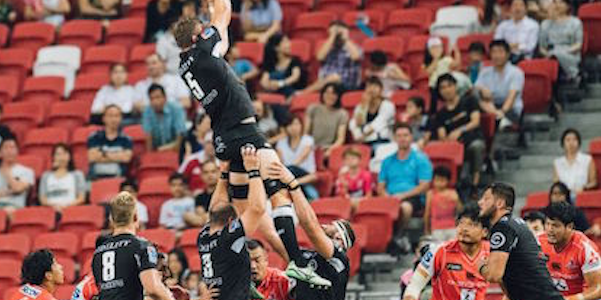

Helpful Expert Advice To Preventing Major Rugby Injuries
HS / CLUB RUGBYLEVELUP INSIDERS March 1, 2018 Jason Ahuero 0

When it comes to rugby injuries, education and preparation are the keys to prevention. Dr. Jason Ahuero, assistant professor of orthopedic surgery at Baylor College of Medicine, breaks down the sport’s potential injuries and ways to preventing major rugby injuries.
“Rugby is the fastest growing youth sport in the United States. So it’s important that people are aware of the injuries so that they can prevent them,” said Ahuero. He also serves as the lead team physician for the Houston SaberCats, the city’s first professional rugby team.
While concussions do occur in rugby, World Rugby is at the forefront of concussion education and prevention for coaches, athletes and the medical team, according to Ahuero.

Each player is required to take concussion awareness training once per year. Understanding the rest-and-return-to-play protocol and the impact of concussions is essential for rugby players of all ages, Ahuero said.
Because rugby is a tackling sport, neck injuries can occur, especially during the scrum, where players pack closely together with heads down to get possession of the ball.
Another point in the game where athletes are at risk for neck injuries is the lineout, where the play is restarting. One team member is lifted up by his teammates to retrieve the ball.
While these types of injuries are not as common, Ahuero said that neck strengthening exercises are an important part of preventing them.
Preventing Major Rugby Injuries For Head And Neck:
Many of the head and neck injuries can be prevented by following proper tackling technique.
“The rugby tackle is done with the shoulders, and there are no high hits in the sport, meaning you can’t hit above the opponent’s shoulder. The ideal spot to tackle somebody is somewhere between the chest and the knees,” Ahuero said.
In general, proper conditioning, diet and warmups are good ways preventing major rugby injuries. In the weight room, the focus should be on developing muscles around the shoulders and the chest.
“The more muscles you have, the better,” Ahuero said.
Functional movement systems, where athletes are evaluated on movements such as hip and shoulder mobility. Then follow a tailored program to work on these areas to decrease injuries in many different sports, including rugby.
A proper warmup includes dynamic activities relevant to the movement requirements of the sport and position. For rugby, this could include jogging, lateral movement and passing and quick, short bursts from a scrum position.
 “You shouldn’t just show up to practice without properly warming up your muscles,” Ahuero said. “A lot of the players are there warming up an hour before they hit the field for practice.”
“You shouldn’t just show up to practice without properly warming up your muscles,” Ahuero said. “A lot of the players are there warming up an hour before they hit the field for practice.”
He recommends hydrating, resting and refueling appropriately after a workout.
In all cases, Ahuero said that having access to an athletic trainer at practices and matches is key for injury prevention. Also, to help early recognition and management of injuries. He suggests finding an athletic trainer who has experience with rugby coverage.
If an injury does occur, following the right recovery process can help by preventing major rugby injuries to the area.









No comments so far.
Be first to leave comment below.